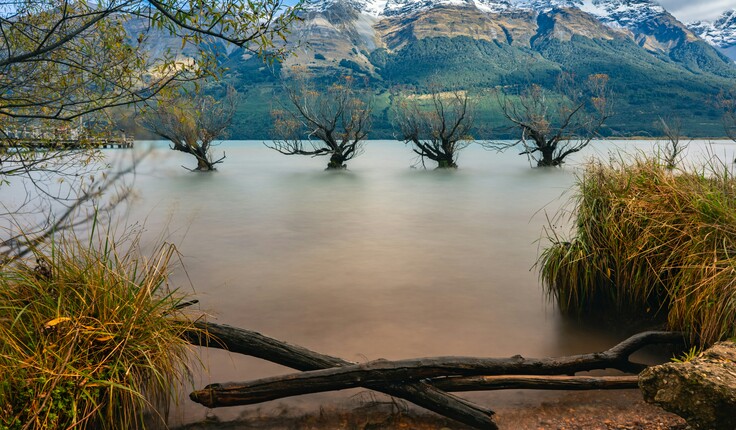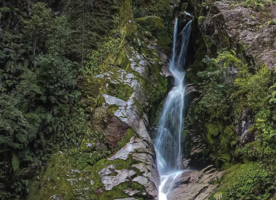News
Climate Change Adaption - NZILA Submission
Posted 17 06 2024
in News

Recommendations & Insights
The Climate Change Working Group has lodged a submission on the Parliamentary inquiry on climate adaption. An excerpt of the submission is below:
As professionals dedicated to the design, planning, management, and stewardship of the built and natural environments, we understand the profound impact that climate change has on our landscapes and communities. We have formed a Climate Change Working Group for the explicit purpose of putting together guidelines to help our members to design better for the environmental effect of climate change. The guidelines will be indigenous led, in collaboration with Te Tau-a-Nuku - the Māori Landscape Architects Ropu. We believe that this will be a world first for landscape architects.
Climate change poses significant challenges to all our landscapes, from rising sea levels affecting coastal areas, to increased frequency and intensity of extreme events including floods, droughts and wildfires impacting our rural and urban areas. These changes not only affect the physical landscape but also have far-reaching implications for the biodiversity, cultural values, and socio-economic stability of our communities.
Climate change disproportionately impacts Tāngata Whenua communities, particularly due to existing socio-economic inequities and geographical locations. Many Tāngata Whenua live in coastal, rural, and remote areas, which are more susceptible to the effects of climate change. These effects include damage to homes, infrastructure, and sites of cultural significance, such as marae (meeting grounds), urupā (burial sites), wāhi tapu (sacred places), and mahinga kai (food gathering places).
Adaptation to climate change must therefore respond to both biophysical and socio- economic challenges and requires a systemic understanding of impacts and opportunities. A landscape perspective offers a powerful and flexible framework for understanding and action.
Landscape Architecture and climate adaptation
Landscape Architects are uniquely positioned to contribute to climate change adaptation. Our work involves a deep knowledge of ecological systems, cultural and community values, and long-term planning and design strategies. We understand how thoughtful design and planning can create resilient landscapes that not only mitigate the impacts of climate change but also enhance community wellbeing and biodiversity.
We recognize that Tāngata Whenua have been proactive in adapting to the effects of climate change. As kaitiaki (guardians) of their whenua (land), Tāngata Whenua are leaders in their communities, decision-makers about resources and infrastructure, landowners, and business owners. Mātauranga Māori, the body of knowledge originating from Tāngata Whenua ancestors, is a crucial resource in informing decision-making and learning about climate adaptation. This indigenous knowledge system, combined with modern science, can provide a holistic understanding of the environment and the impacts of climate change.
Tuia Pito Ora New Zealand Institute of Landscape Architects and its members engage collaboratively with all communities in Aotearoa New Zealand within a Treaty context, drawing upon Mātauranga Māori, modern science and professional expertise shared within a worldwide network of landscape architects and institutions.
Recommendations
1. Integrate Climate Adaptation in Planning and Design at all scales: We recommend that climate adaptation measures be integrated into all levels of planning and design, from national policies to local community projects and individual developments.
2. Invest in Green Infrastructure: Investment in green infrastructure, such as sustainable urban drainage, urban forests, parks, and wetlands, can provide multiple benefits, including stormwater management, heat reduction, biodiversity enhancement, and community wellbeing.
3. Promote Community Engagement in climate adaptation: Engaging communities in climate adaptation efforts is crucial. This not only ensures that solutions are culturally appropriate and locally relevant, but also fosters a sense of ownership and resilience within communities.
4. Support Research and Innovation: Continued research and innovation in climate adaptation strategies are essential. We encourage the government to support these efforts through funding and policy support.
5. Recognise and respect the role of Tāngata Whenua as kaitiaki and their leadership in climate adaptation.
6. Incorporate Mātauranga Tāngata Whenua into climate adaptation strategies and decision making processes.
7. Address the disproportionate impacts of climate change on Tāngata Whenua communities in climate adaptation policies.
Tuia Pito Ora New Zealand Institute of Landscape Architects is committed to working collaboratively with the government, tāngata whenua, communities, and other stakeholders in addressing the challenges of climate change. We believe that through collective effort and innovative solutions, we can adapt to climate change while creating resilient and vibrant landscapes for future generations.
The full submission is available to view HERE.
Special thanks to Meg Back, Matthew Bradbury, Simon Swaffield, and Alan Titchener for their work preparing the document.
12 Feb
NZILA lodges submission on Planning Bill and Natural Environment Bill

There’s still time to have your say
Tuia Pito Ora New Zealand Institute of Landscape Architects has lodged its formal submission on the Planning Bill and Natural …
09 Feb
Weekly international landscape, climate and urban design update

Monday 9 February
This is your weekly international snapshot of what’s happening across landscape architecture, climate adaptation and urban design. Drawing on credible …
02 Feb
RMA Reform submission update

Call for feedback and images
Submission framework The Environmental Legislation Working Group thanks all members who made the effort to join us at the national …
Events calendar
Full 2026 calendar